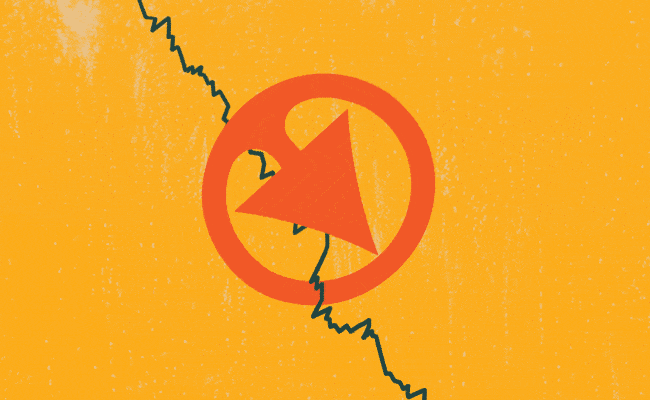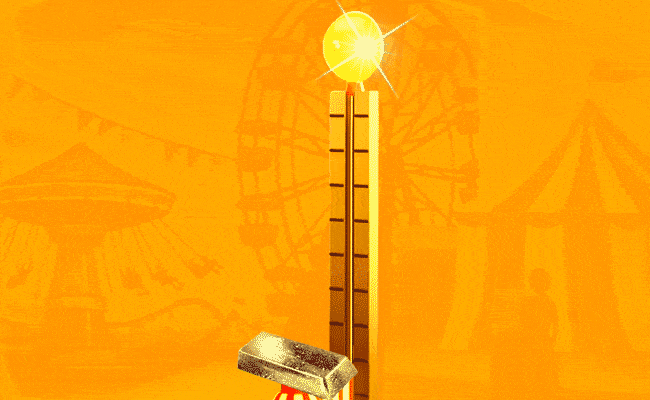Last week on Currency we mentioned the “efficient market hypothesis” in relation to Richard Cheesman’s soon-to-launch “special situations” hedge fund. This, we said, holds that asset prices reflect all available information all the time. In theory, this would mean that “beating the market” is impossible, as the news investors need to know is already priced into a company’s stock. Reality, however, tells us that’s frequently not the case. And we mentioned Montauk Renewables and Thungela as two companies that made a few canny investors a packet thanks to surprising developments.
Graham Barr, an emeritus professor at the University of Cape Town, sent us this letter sharing his take on what makes markets tick. We appreciate his views and trust you will too.
Share prices reflect available information in that investors who scrape up lots of information determine prices. If prices are lower than investors think is a fair reflection of value, they will buy and, if the opposite is true they will sell.
Of course, this scraping up of information is done by seemingly “clever” investors who (presumably) buy from investors who must be assumed to be a bit dumb, because they didn’t have, or didn’t properly interpret, the available information. The underlying tenet is always: those who buy think the price is going up and those who sell think the price is going down.
Now, some dig very well and find actual useful, extra information. This is what analysts at investment houses are meant to do, and sometimes are good at doing. If they are good at digging and unearthing nuggets of (actual) new information, they will be rewarded for this clever digging and their resulting share picks will do well, and vice versa. Because, when this new info is disseminated into the market, the set of available (positive, say) information increases, the share price will rise and the analyst who found and acted upon (bought, in this case) this information, will be happy.
Of course, this is different from someone acting on insider information; like an insider who knows (and no-one else does) that the boss of a thriving company has been diagnosed with cancer. Then, actually acting on this insider information would be technically illegal.
Notwithstanding all of this, and when diggers have seemingly dug deeply, good nuggets might still remain and the company might still be undervalued or overvalued and produce an unexpected profit surge (and associated share price increase), or there may be some unexpected mistake in its accounting procedures, and the share price could similarly react (whether by rising or falling).
That doesn’t make the market inefficient.
The price still reflects available information at any point in time. And, those who successfully obtained new information are rewarded.
Of course, asset managers don’t always act on what they advise others to do! The key question to ask an asset manager is: “How many shares do you hold in this share that you are recommending.” They often look sheepish. If they have bought shares, you might ask. “But then isn’t it too late? Am I not pushing up the price for shares you have already bought? Aren’t they then already at full value?”
The other issue is whether an asset manager actually knows something that others don’t know which is positive for the share price, why would they tell you, anyway. And if they find undiscovered information on a regular basis, why would they ever work for an investment house and put money into others’ pockets, rather than their own?
The question to ask vis-à-vis your article is: “When did you buy Montauk and Thungela, and how much do you hold?” A follow up might be, “At what price did you buy them? What is their price now?”
So what does the average investor do? The rule for investors is the key truth that the study of finance provides about share markets – that is: diversify a portfolio as widely as possible.
As a final aside: the overall stock market has steamed ahead over a long period. How does that fit in? At any point in time, for example, a world war could happen in the future. This is a risk and has to be priced in. Each decade it doesn’t happen, the share market reflects a piece of history that is unexpectedly good, because there was no world war. Consider the market crash when Covid actually happened, and when it was seen that the impact was overblown, check how the market recovered.
Throw in one more thing. Technology has, over a long period, substantially overdelivered, compared to what it was expected to. That has underpinned the success of the world, and the market over the past century or two.
Best wishes,
Graham Barr
Currency is always happy to publish the views of our readers, even when they disagree with our pronouncements! So please mail us on info@currencynews.co.za.
Top image: Rawpixel/Currency collage.
Sign up to Currency’s weekly newsletters to receive your own bulletin of weekday news and weekend treats. Register here.













